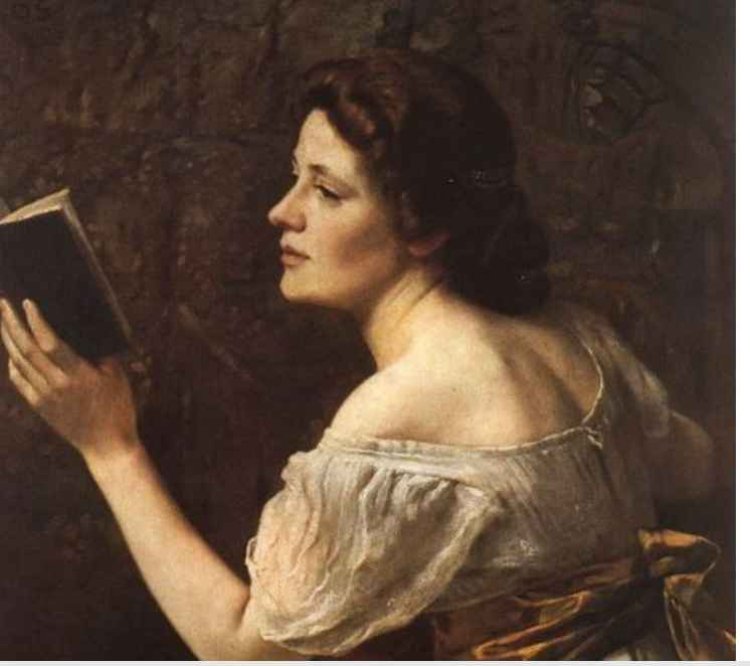Mary Wollstonecraft: Pioneer of Feminism and Women's Rights
"Explore the life and legacy of Mary Wollstonecraft, a trailblazer for feminism and women's rights. Discover how her groundbreaking work, A Vindication of the Rights of Woman, challenged 18th-century norms and continues to inspire the modern feminist movement." "A deep dive into Mary Wollstonecraft's life, works, and influence on feminism. Learn about her advocacy for women's education and independence, setting the foundation for gender equality." These tags are crafted to be SEO-friendly, incorporating relevant keywords like "Mary Wollstonecraft," "feminism," and "women's rights" to boost visibility in search results.
Share this Post to earn Money ( Upto ₹100 per 1000 Views )

Mary Wollstonecraft: Pioneer of Feminism and Women's Rights
Mary Wollstonecraft, a towering figure in the history of feminism, continues to inspire countless individuals worldwide. Known for her groundbreaking work, A Vindication of the Rights of Woman, Wollstonecraft's life and writings laid the foundation for modern feminist thought. As an early advocate of women's equality and empowerment, she challenged the prevailing societal norms of her time and emphasized the importance of education and independence for women. This article explores her life, her works, and her enduring impact on feminism and women’s rights.
Early Life and Influences
Mary Wollstonecraft was born on April 27, 1759, in Spitalfields, London, into a family plagued by financial instability and domestic turmoil. Her father, Edward John Wollstonecraft, squandered family wealth and was abusive, experiences that instilled in her a deep desire for independence. Despite limited educational opportunities for women in 18th-century England, Wollstonecraft pursued knowledge vigorously, teaching herself languages, history, and philosophy.
Her early life experiences influenced her passion for social reform. As she grew older, she became acutely aware of the restrictions imposed on women and the lack of educational opportunities available to them. This personal struggle laid the groundwork for her later work advocating for gender equality and women's rights.
Career Beginnings and First Writings
Mary Wollstonecraft's early career began in a small boarding school for girls in Newington Green, London. Teaching became her pathway to independence, and through this work, she recognized how education (or the lack thereof) reinforced women’s subjugation. She observed how societal expectations confined women to domestic roles, depriving them of intellectual fulfillment.
In 1787, Wollstonecraft published her first work, Thoughts on the Education of Daughters, addressing the importance of a balanced education that nurtures a woman's intellect alongside her moral character. Although not widely recognized at the time, this work marked her first step toward challenging societal norms and advocating for the intellectual empowerment of women.
A Vindication of the Rights of Woman
Mary Wollstonecraft’s most influential work, A Vindication of the Rights of Woman, published in 1792, was revolutionary. Written as a response to Enlightenment thinkers who excluded women from their advocacy for social reform, this text argued that women should be afforded the same education and social rights as men. Wollstonecraft asserted that women were not inherently inferior but were kept subjugated due to lack of education and opportunity. Her arguments positioned women as rational beings deserving of autonomy and equality.
In A Vindication of the Rights of Woman, Wollstonecraft critiqued the way society shaped women's dependency and promoted docility as feminine virtues. She believed that women could contribute to society meaningfully if provided with an education equal to that of men. This work is often seen as the first substantial feminist manifesto, as it systematically articulated the limitations imposed on women by patriarchal institutions.
By advocating for educational reform, Wollstonecraft aimed to dismantle the structures that kept women subservient. Her vision was bold: she imagined a society where women would not be limited by stereotypes but recognized for their intellectual potential.
Themes in Wollstonecraft’s Work
In her writing, Mary Wollstonecraft explored themes of independence, rationality, and moral integrity. She argued that without education, women could not achieve intellectual maturity, which society falsely interpreted as intellectual inferiority. Wollstonecraft’s insistence on rationality reflects the Enlightenment's values, as she believed women, like men, were capable of reason and should not be solely judged by their adherence to domestic roles.
Another key theme in her work was economic independence. Wollstonecraft understood that economic dependency forced many women into unhappy marriages and positions of subordination. By advocating for women’s right to work and manage finances, she laid the groundwork for the feminist emphasis on economic equality that would emerge in later movements.
Legacy and Influence on Feminism
Mary Wollstonecraft’s ideas were considered radical for her time and were often met with criticism. However, her legacy endured, particularly through the writings of subsequent feminists who found inspiration in her pioneering efforts. Wollstonecraft's daughter, Mary Shelley, known for writing Frankenstein, also inherited her mother's progressive spirit, extending Wollstonecraft's influence into future generations of literature and feminist thought.
In the 19th and 20th centuries, Wollstonecraft’s work gained recognition as a cornerstone of feminist philosophy. Figures like John Stuart Mill and Virginia Woolf cited her ideas, acknowledging her as a forebear of women’s rights. Modern feminists continue to view Wollstonecraft as a seminal figure, whose courage to question gender inequality marked the inception of a movement that remains active worldwide.
Criticism and Controversy
Despite her achievements, Mary Wollstonecraft faced criticism both during her life and posthumously. Her personal life, marked by relationships outside marriage, financial struggles, and her unconventional beliefs, became the subject of scrutiny and scandal. Following her death in 1797, her husband, William Godwin, published Memoirs of the Author of A Vindication of the Rights of Woman, which detailed her personal life and relationships. Unfortunately, this tarnished her reputation in conservative circles, overshadowing her intellectual contributions for some time.
However, as society’s views evolved, her personal life came to be seen not as a scandal but as a reflection of her commitment to living authentically and rejecting societal constraints on women.
Relevance Today
Mary Wollstonecraft's pioneering ideas remain highly relevant today. The issues she addressed—educational access, economic independence, and the equality of the sexes—continue to be central to contemporary feminist movements. Her life and writings remind us of the importance of questioning societal norms and advocating for equal opportunities for all individuals, regardless of gender.
Today, A Vindication of the Rights of Woman is recognized as a classic text in feminist philosophy, studied widely across disciplines, from literature to political science. Wollstonecraft’s insistence on equal rights has had a lasting impact on policies and reforms aimed at improving gender equality worldwide. Her vision for a society where both men and women can flourish as rational, autonomous beings still resonates with advocates for equality and justice.
Conclusion
Mary Wollstonecraft’s contributions to feminism and women’s rights have solidified her place in history as a true pioneer. Through her bold ideas and unyielding dedication to gender equality, she set a precedent that inspired future generations to push for progress. Wollstonecraft’s life reminds us that challenging societal norms can pave the way for meaningful change. Her legacy continues to shape the global movement for women’s rights, making her a timeless symbol of courage and conviction in the pursuit of equality.
For further exploration of feminist thought and political theories, visit Political Science Solution.















